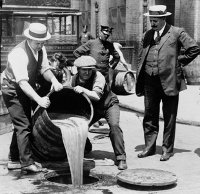 Within the last two months, three money-laundering conspiracies have been exposed, each implicating a handful Orthodox Rabbis, religious Jews, or Israelis.
Within the last two months, three money-laundering conspiracies have been exposed, each implicating a handful Orthodox Rabbis, religious Jews, or Israelis.
Last week, the Grand Rabbi of Spinka, an ultra-Orthodox Jewish sect, and four associates, plead guilty to criminal conspiracy as a result of a decade-long $8.5 million tax fraud and money-laundering scheme. Two weeks ago Jerusalem resident and U.S. citizen Marvin Berkowitz was arrested with seven alleged accomplices in a massive fraud and million dollar money-laundering scam. Finally, and most notoriously, five Orthodox rabbis were among the 44 arrested by the FBI and IRS in late July as part of a massive corruption scandal from New York to Israel involving extortion, tens of millions of dollars in laundered money, organ trafficking, and political bribes.
With each report of scandal, Jews around the world buried their heads in their collars a bit further, muttering “it’s bad for the Jews,” and it was. But as Jonathan Sarna pointed out in the Jewish Daily Forward last week, this kind of high-level Jewish scandal is nothing new.
Sarna’s must-read article described the close-nit relationship between bootleggers and primarily Orthodox rabbis during Prohibition, and the press-worthy corruption that resulted. He writes:
The 18th Amendment to the Constitution, which went into effect on January 16, 1920, barred the “manufacture, sale or transportation of intoxicating liquors.” Congress, however, granted an exemption to those who required wine “for sacramental purposes or like religious rites.” Thanks to this legislation, Jews who ritually bless God for “creating the fruit of the vine” could obtain up to 10 intoxicating gallons of wine per year directly from their rabbis.
According to Sarna, bootleggers and rabbis worked hand-in-hand to provide barrels of “sacramental wine” to Jewish congregants. As a result, “ritual consumption of wine on the part of Jews skyrocketed during these years, the blessing over the wine becoming the most widely and scrupulously observed of all Jewish religious practices.”
While public awareness of this operation shamed many Reform and Conservative rabbis into changing their ways, Orthodox rabbis continued, and many were charged with distributing wine illegally.
Sarna ends his article pondering the impact of the latest spate of Jewish scandals on the Jewish community for years to come. Does the corruption of a few endanger the reputation of the whole? Will these scandals fuel the flames of anti-Semitism, or fade into the dust? The answer is yet unknowable, but one thing is clear.
It certainly is bad for the Jews.
On a side note – if you are interested in reading a book about Jewish gangsters and bootleggers during Prohibition, my gangster-historian father (Paul Maccabee, author of John Dillinger Slept Here), recommends the following: But He Was Good to His Mother, Tough Jews, and Meyer Lansky’s biography Little Man.
(Photo of the removal of liquor during Prohibition: Wikimedia Commons)

